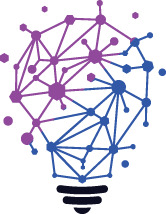Rehab News Blog

-
From Rock Bottom to Recovery: The Turning Point Moments
Addiction doesn’t announce itself with a warning. It builds silently, often dragging a person deeper into despair until they hit what’s commonly known as “rock bottom.” But for many, that…
-
What to Expect During Drug and Alcohol Rehab: A Step-by-Step Guide
Entering rehab for drug or alcohol addiction can feel overwhelming, especially if you don’t know what to expect. Whether you’re seeking treatment for yourself or supporting a loved one, understanding the rehab process can ease anxiety and help prepare for the journey ahead. This step-by-step guide breaks down the typical stages of drug and alcohol…
-
Life After Rehab: Building a Sober and Sustainable Future
Completing rehab is a major milestone — a powerful step toward breaking free from addiction. But recovery doesn’t end when treatment does. In many ways, life after rehab is where…
-
Relapse Prevention Strategies for Staying Sober
Relapse prevention is essential for maintaining long-term sobriety, offering essential guidance for individuals navigating life after recovery treatment. Before completing their rehabilitation journey, clients are equipped with practical strategies and…
-
What to Pack for Detox and Addiction Treatment
Entering inpatient addiction treatment can feel like stepping into uncharted territory. It’s natural to have questions about what to bring along. While you might be tempted to overpack, it’s important…
-
Get to Know Dual Diagnosis Treatment
Dual diagnosis treatment offers a revolutionary method for addressing substance use disorders and mental health challenges at the same time. Many people struggling with addiction also face mental health conditions…
-
Family Therapy for Substance Abuse
Substance abuse is a multifaceted condition that impacts not only the individual but also their loved ones, especially family members. Recovery requires addressing the broader context of relationships, dynamics, and…
-
Recognizing Signs of Substance Abuse in Teens
The number of teenagers struggling with substance abuse is increasing. Roughly one in seven adolescents between the ages of 10 and 19 will face a mental health challenge, including issues…
-
Does My Insurance Cover Addiction Treatment?
Insurance plans differ significantly—some limit you to in-network providers, while others allow you to seek care almost anywhere. Finding a detox or rehab program that aligns with your insurance doesn’t…








